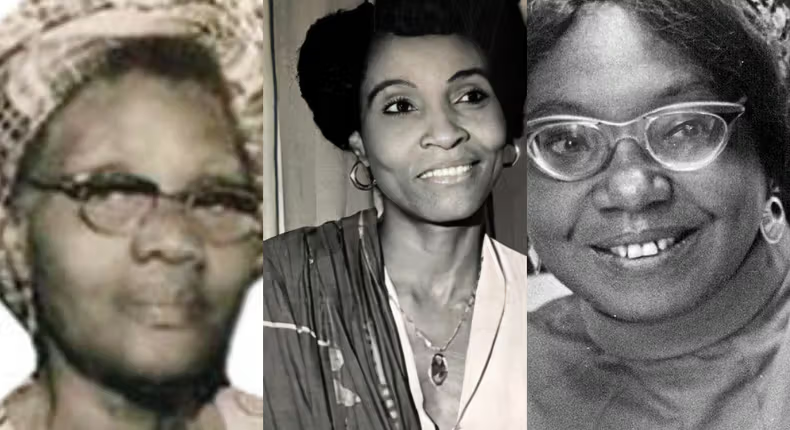There is no better time than now to revisit the profiles of women who believed in their causes and pushed all possible buttons to achieve them, even in male-dominated spaces. Here, we take a closer look at the lives and legacies of five remarkable women who have made significant contributions to Nigeria’s history.
FUNMILAYO RANSOME-KUTI (1900–1978)
Widely recognized as the first woman to drive a car in Nigeria, Funmilayo Ransome-Kuti, also known as the “Lioness of Lisabi,” was a pioneer from her early years, being the first female student admitted to Abeokuta Grammar School. Born on October 25, 1900, in Abeokuta, Ogun State, she was a teacher who actively led women’s rights movements and fought against colonial taxation. A mother of four sons, including the famous Afrobeat legend Fela Anikulapo-Kuti, Funmilayo remains one of Nigeria’s most influential female figures.
MARGARET EKPO (1914–2006)
The legacy of Margaret Ekpo is enduring. Born on July 27, 1914, in Creek Town, Cross River State, she had to pause her education after her father’s death in 1934 while she was in Standard Six. Her interest in politics grew after attending meetings on behalf of her husband, a medical doctor. She participated in the Constitutional Conferences in Lagos and London, which contributed to Nigeria’s independence in 1960. Known as a fashion icon, Margaret used her style as a form of silent protest against colonial rule.
HAJIA GAMBO SAWABA (1933–2001)
Born in February 1933 in present-day Niger State, Hajia Gambo Sawaba, originally named Hajaratu, became an active political force in the North. Despite being married at 13 and losing her parents at a young age, her passion for activism remained unwavering. She campaigned against British colonial rule and forced child marriages through her membership in the Northern Elements Progressive Union (NEPU). Her bravery is exemplified by her 16 imprisonments for fearless activism.
FLORA NWAPA (1931–1993)
Flora Nwapa dedicated her life to using her writing to recreate Igbo culture from a female perspective, highlighting untold narratives. In 1966, her novel Efuru was published, making her the first African woman to publish a novel in English, earning her the title of “mother of modern African literature.” After the Biafran war, she played a vital role in helping orphans and displaced refugees find shelter and relief as the Minister of Health and Social Welfare in East Central State.
HANNAH IDOWU DIDEOLU (HID) AWOLowo (1915–2015)
As the wife of Chief Obafemi Awolowo, HID Awolowo supported her husband throughout his political career, often referred to by him as his “jewel of inestimable value.” Her involvement in Nigeria’s political history is significant; during her husband’s imprisonment, she stood in for him and actively participated in the NCNC and AG alliance, helping to form the United Progressive Grand Alliance (UPGA).
These women not only broke barriers in their respective fields but also laid the groundwork for future generations, continuing to inspire women across Nigeria and beyond.

